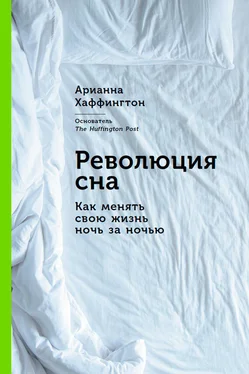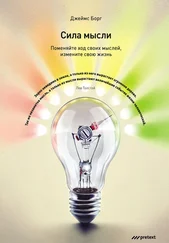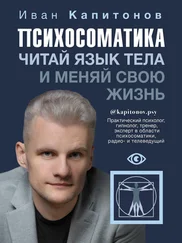Jonathan Cedernaes, Megan E. Osler, Sarah Voisin, Jan-Erik Broman, Heike Vogel, Suzanne L. Dickson, Juleen R. Zierath, Helgi B. Schioth, and Christian Benedict, "Acute Sleep Loss Induces Tissue-Specific Epigenetic and Transcriptional Alterations to Circadian Clock Genes in Men," The Journal of Clinical Endocrinology & Metabolism 100 (2015): doi: 10.1210/JC.2015–2284.
Pallab Ghosh, «Why Do We Sleep?» BBC News, May 15, 2015, http://www.bbc.com.
Nedergaard, interview with Hamilton.
Lulu Xie, Hongyi Kang, Qiwu Xu, Michael J. Chen, Yonghong Liao, Meenakshisundaram Thiyagarajan, John O'Donnell, Daniel J. Christensen, Charles Nicholson, Jeffrey J. Iliff, Takahiro Takano, Rashid Deane, and Maiken Nedergaard, «Sleep Drives Metabolite Clearance from the Adult Brain,» Science 342 (2013): 373–77; Angela Mulholland, «Not Enough Sleep? Your Brain May Be Paying the Price: Study,» CTVNews, May 29, 2015, http://www.ctvnews.ca.
«Poor Sleep Linked with Enlarged Spaces Around Brain's Blood Vessels,» Sunnybrook Health Sciences Center, May 29, 2015, http://www.sunnybrook.ca.
«To Sleep, Perchance to Clean,» University of Rochester Medical Center press release, October 17, 2013, http://www.urmc.rochester.edu.
Claire Sexton, email to the author, March 2, 2015.
Ben Stein, What Would Ben Stein Do?: Applying the Wisdom of a Modern-Day Prophet to Tackle the Challenges of Work and Life (Hoboken: Wiley, 2011), Kindle edition.
Jing Zhang, Yan Zhu, Guanxia Zhan, Polina Fenik, Lori Panossian, Maxime M. Wang, Shayla Reid, David Lai, James G. Davis, Joseph A. Baur, and Sigrid Veasey, «Extended Wakefulness: Compromised Metabolics in and Degeneration of Locus Ceruleus Neurons,» The Journal of Neuroscience 34 (2014): 4418–31.
«Penn Medicine Researchers Show How Lost Sleep Leads to Lost Neurons,» Perelman School of Medicine/University of Pennsylvania press release, March 18, 2014, http://www.uphs.upenn.edu.
June C. Lo, Kep Kee Loh, Hui Zheng, Sam K. Y. Sim, and Michael W. L. Chee, «Sleep Duration and Age-Related Changes in Brain Structure and Cognitive Performance,» SLEEP 37 (2014): 1171–78.
Christian Benedict, Liisa Byberg, Jonathan Cedernaes, Pleunie S. Hogenkamp, Vilmantas Giedratis, Lena Kilander, Lars Lind, Lars Lannfelt, and Helgi B. Schioth, «Self-Reported Sleep Disturbance Is Associated with Alzheimer's Disease Risk in Men,» Alzheimer's & Dementia 11 (2015): 1090–97.
C. Benedict, J. Cedernaes, V. Giedraitis, E. K. Nilsson, P. S. Hogenkamp, E. Vagesjo, S. Massena, U. Pettersson, G. Christoffersson, M. Phillipson, J. E. Broman, L. Lannfelt, H. Zetterberg, and H. B. Schioth, «Acute Sleep Deprivation Increases Serum Levels of Neuron-Specific Enolase (NSE) and S100 Calcium Binding Protein B (S-100B) in Healthy Young Men,» SLEEP 37 (2014): 195–98.
Kessler et al., «Insomnia and the Performance of US Workers.»
Ian D. Blum, Lei Zhu, Luc Moquin, Maia V. Kokoeva, Alain Gratton, Bruno Giros, and Kai-Florian Storch, «A Highly Tunable Dopaminergic Oscillator Generates Ultradian Rhythms of Behavioral Arousal,» eLife 3 (2014): e05105.
Daniel Lewis and Bill Hutchinson, «Brooklyn's Susannah Mushatt Jones, the World's Oldest Person at 115, Thanks Sleep for Long Life,» Daily News, June 23, 2015, http://www.nydailynews.com.
Anwar, «Poor Sleep Linked to Toxic Buildup of Alzheimer's Protein, Memory Loss.»
Steven J. Frenda, Lawrence Patihis, Elizabeth F. Loftus, Holly C. Lewis, and Kimberly M. Fenn, «Sleep Deprivation and False Memories,» Psychological Science 25 (2014): 1674–81.
Anna Almendrala, «The Disturbing Link Between Sleep Deprivation and False Memories,» The Huffington Post, July 28, 2014, http://www.huffingtonpost.com.
Paul Whitney, John M. Hinson, Melinda L. Jackson, and Hans P. A. Van Dongen, «Feedback Blunting: Total Sleep Deprivation Impairs Decision Making That Requires Updating Based on Feedback,» SLEEP 38 (2015): 745–54.
Maanvi Singh, «Short on Sleep? You Could Be a Disaster Waiting to Happen,» NPR, May 12, 2015, http://www.npr.org.
Bronwyn Fryer, «Sleep Deficit: The Ultimate Performance Killer,» Harvard Business Review, October 2006, http://www.hbr.org.
Kenichi Kuriyama, Robert Stickgold, and Matthew P. Walker, «Sleep-Dependent Learning and Motor-Skill Complexity,» Learning & Memory 11 (2004): 705–13.
Robert Stickgold, «Sleep, Memory and Dreams: Fitting the Pieces Together» (San Antonio: TEDxRiverCity, 2010), http://www.youtube.com.
Demis Hassabis, email to the author, October 9, 2015.
Stuart Russell, email to the author, January 25, 2016.
Hassabis, email to the author.
John Steinbeck, Sweet Thursday (New York: Penguin, 1979), 107. (Стейнбек Д. Благостный четверг. – М.: АСТ, 2011.)
Испытуемым предстояло запомнить ряд несуществующих слов. Проверка проводилась дважды: первый раз сразу после запоминания, второй – через 12 часов. Первая группа имела возможность лечь спать во время 12-часового перерыва, вторая должна была бодрствовать все это время. Вторая проверка слов была акцентирована на тех словах, которые испытуемые забыли в первый раз.
"Sleep Makes Our Memories More Accessible, Study Shows," University of Exeter press release, July 27, 2015, http://www.exeter.ac.uk.
Lockley and Foster, Sleep, 53.
Исследование, проведенное в 2015 г. научно-исследовательским институтом Scripps, также было направлено на изучение взаимосвязи между сном и памятью. Дело не только в том, что сон улучшает память. По результатам исследования было установлено, что увеличение количества сна приводит к снижению активности дофаминового нейрона, которую связывают с забыванием. «Многие ученые пытались понять, как ‹…› закрепить воспоминания, – сказал Рон Дэвис, председатель Отделения нейронауки Scripps. – Но процессу забывания уделяют намного меньше внимания, а ведь это одна из основных функций головного мозга».
Читать дальше
Конец ознакомительного отрывка
Купить книгу




![Билл О'Хэнлон - Действуй иначе! [Десять элементарных способов изменить свою жизнь к лучшему]](/books/393885/bill-o-henlon-dejstvuj-inache-desyat-elementarnyh-thumb.webp)







